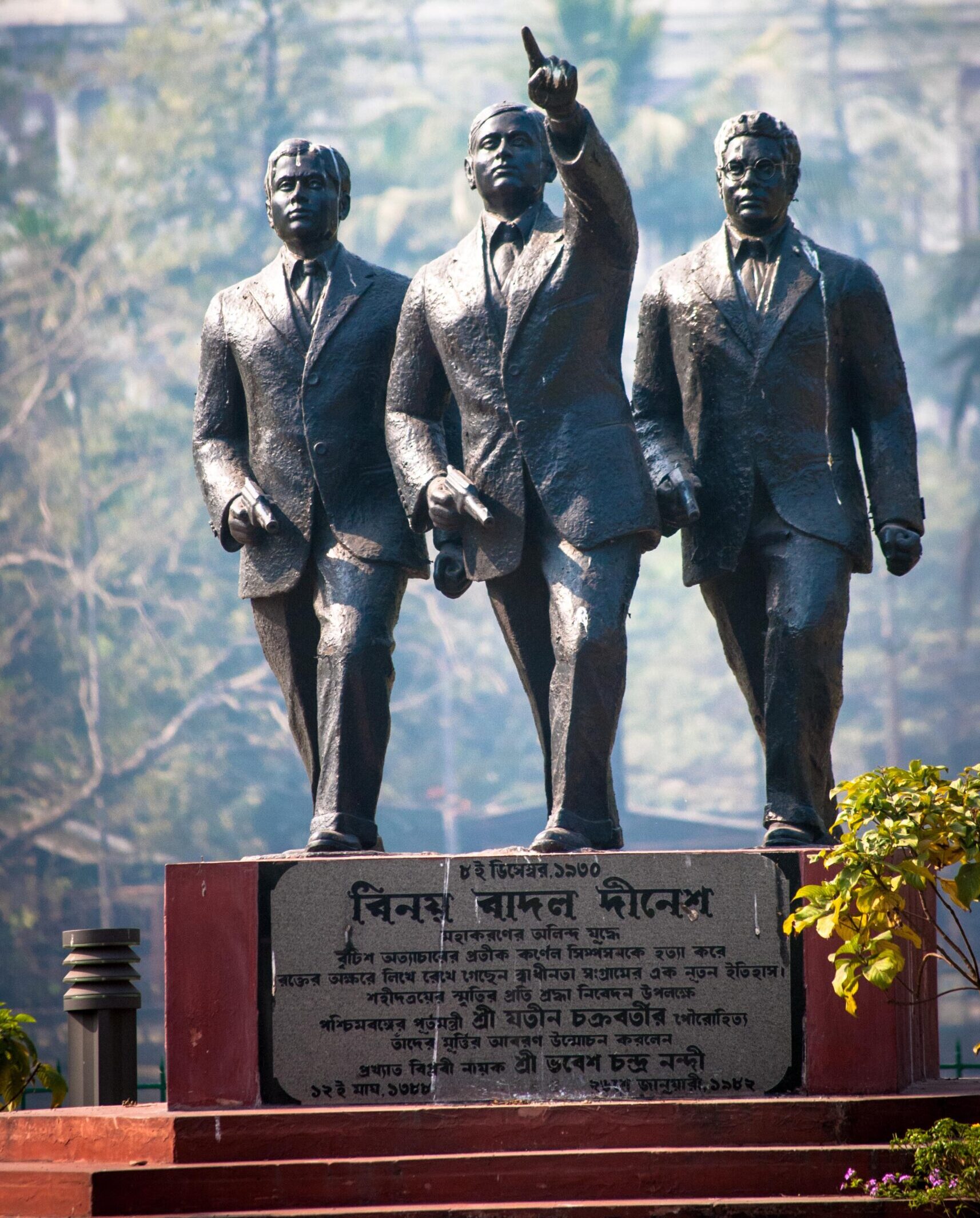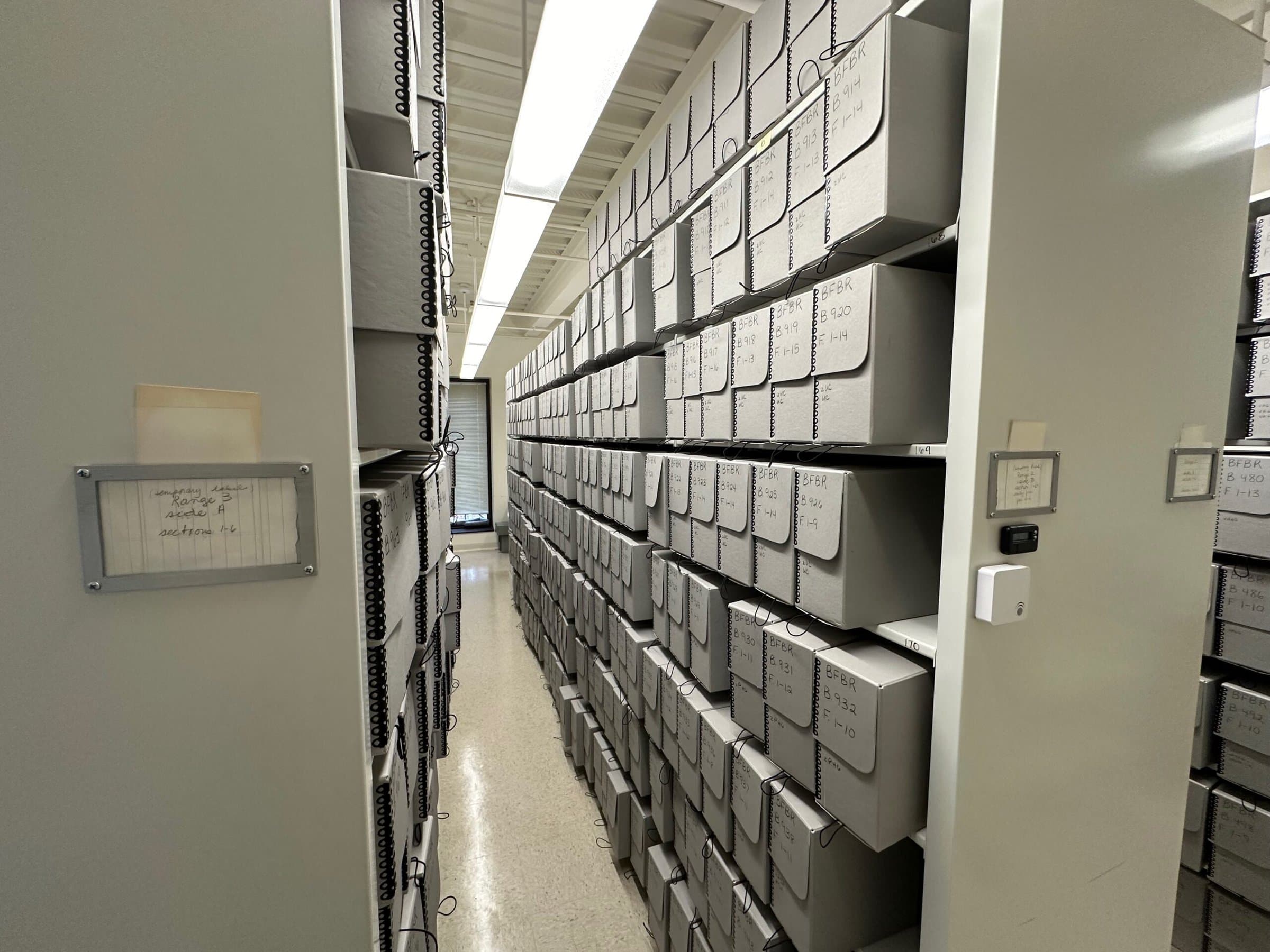Until just recently, research in Russia for foreigners meant few real documents. Scholars had to rely solely on interviews and books in libraries, and both had to be viewed with some skepticism. Now, however, the archives of the former Soviet Union are slowly opening up, and, little by little, documents of some real historical value are appearing. But unlike the Berlin Wall, the walls of the archives have yet to come down completely, and any celebrating may be premature.
So far, the documents made available have been just what was expected. Letters, correspondence, records, notes, telegrams, minutes of meetings, and so on, all present the facts much more clearly than interviews and books based on recollection. More clearly, that is, to the person who wrote down the materials.
However, the mere availability of documents does not guarantee their usefulness. In 1990, as the doors to the Soviet archives began to squeak open, Russian researchers discovered a copy of a telegram that had been sent to Moscow from the Soviet embassy in Washington a short time after World War II. This telegram was touted as the equivalent of one sent to Washington by George Kennan from the American embassy in Moscow; Kennan’s telegram and his subsequent article in Foreign Affairs helped shape American impressions of the Soviet Union for decades to follow. Was this recently discovered Soviet document, called the Novikov Telegram after the purported author, equally influential? The journal Diplomatic History printed a series of articles devoted to the Novikov Telegram, but after much ado, it was decided that the telegram really told us nothing new. It had little significance and thus only whetted our appetites for more.1
Researchers got busy. The slowly increasing availability of historical material means that Russophiles the world over are coming to Moscow. Scores of scholars have arrived, and all of them want to see the documents, whatever documents they can. Underneath all the papers and all the paperwork, there is a sense of excitement in the archives.
The expectation and hope is clouded over somewhat by the tremendous volume of material available. The Soviet Union saved everything. Many documents have been carefully preserved on microfilm or in their original form. Others have been placed in booklets or boxes, or bound into pamphlets or folders. The Communist government saved a lot of paper, and this means that there are a lot of documents to read. Many, like the Novikov Telegram, are pure pyrite, so if researchers are to find something valuable, they have a great deal of work to do.
It is these busy scholars who will ultimately help determine whether the rulers of the USSR will go down in history as having conducted a noble experiment or a failed attempt at permanent dictatorship. One question prompted by the archives is how Soviet leaders themselves perceived their situation. If they believed that they were engaged in a noble experiment, then the archives are understandable, for every scrap of governmental paper seems to have been saved: letters between mid-level functionaries; handwritten notes for speeches that were never given; several drafts of memos to be sent from one department to another; doodles made by functionaries on the back of Communist Party notepads; notes written by individuals to themselves about private matters, in handwriting almost illegible; transcripts of meetings on mundane subjects; clippings from the Western press on Soviet affairs; and letters to Soviet leaders asking for assistance.
But if we look at the USSR as nothing more than an evil empire and see its leaders as dictators cognizant of the terror they were inflicting, then the archives seem very strange indeed. Why didn’t a government perpetrating one of humanity’s great wrongs—for such was communism at its worst—destroy all evidence of its misdeeds? Perhaps they felt history would show them right. Perhaps those in charge felt they could control history. Yet unlike the image of Leon Trotsky in many public photos, the truth was not erased in the Soviet archives.
In fact, many documents were destroyed, but not until the very end. There were rumors in 1991, from the time of the failed coup through the end of the USSR and beyond, that certain documents at the KGB and the Defense Ministry were disappearing, many forever, some only until the highest bidder could be found.
It is hard to know whether these or any other documents really matter. Some people are already saying that the Soviet Union will, in the end, be seen as just another Russian government, or just another phase in the long history of the Russian empire. If this is so, the archives are of a purely historical interest, the same way documents from the era of Ivan the Terrible might be. Their impact on today’s politics and tomorrow’s policies would be negligible.
But the past, present, and future are not so neatly divided, especially not in Russia, a country that has always valued its history the way a Freudian psychologist values a client’s childhood. Russian character influenced the course and development of Soviet socialism; communism in Russia, such as it was, was Russian communism. And so too will contemporary and future Russian history be influenced by what happened during the seventy years of Communist rule. Building democratic institutions here, for example, cannot be done without grasping the historical legacy of the country’s problems. Pouring money into the country is meaningless, many here believe, without recognizing the economy for what it is, and that means tracing its development. Russia is going through changes, but the course forward cannot be comprehended without constant glances behind.
Thus, even the remotest details of societal organization are important for understanding today’s attempts to create a new society. Even seemingly trivial questions of the former Soviet Union’s foreign policy need to be addressed, to see fully the position of today’s Russia, and to understand better how the United States and the West came to the positions they are in. For Russia, the past and the present are truly one. The archives are as important for building tomorrow as for understanding yesterday.
Of all the shortages that may exist in Russia, there is, therefore, no shortage of research topics with important and interesting significance for today. A few of the questions currently being investigated are the following: How were foreign policy positions created under the Soviets, and how did those positions create the context in which today’s Russia finds itself? What has been the result of decades of censorship on Russia’s press? Who was responsible for particular decisions in Soviet Russia, and is that hierarchy still in place? Thanks to archival research, these questions may eventually have answers.
Unfortunately, the researching process is not always easy. To begin with, as in many archives elsewhere, the record rooms are not open to random browsing. At the Foreign Ministry archives, after submitting a written description of a topic, a researcher must depend on the nameless, faceless archivists to understand the topic, select the documents, and order their delivery from the storage facilities, which are scattered throughout Moscow, in different buildings and various locations. The scholar simply waits, calling from day to day to see if anything has arrived.
At the two archival centers of the Communist Party, the documents are somewhat more user friendly. Here the reader may select from catalogs, called opisi, which summarize each document. Although the summaries are very sketchy, at least the reader can tell which documents actually exist.
However, in neither archive have all documents been declassified. Though the Communist Party has been defunct for more than two years, its documents are still hidden away in vaults located less than a kilometer from the office of Russian Federation President Boris Yeltsin. And though the Soviet Union no longer exists, the Russian Foreign Ministry is still protective of the USSR’s secrets, maintaining the thirty-year rule that was established in 1990 when the Soviet Union was still around.2
It makes little sense to try to convince archive workers that it is no longer necessary to keep certain documents secret. One high-level official at the Foreign Ministry archive told me that Soviet documents from the past thirty years contain American secrets, and Russia did not want to embarrass the United States during the current period of harmonious relations. When I asked him whether it would be possible to have a State Department official look over the documents to see whether there were, in fact, any U.S. secrets, he said that such a process was already under way.
Yet, there are other, more realistic reasons for the delay in declassification. First, while the Communist Party and the Soviet Union officially have been terminated, the people who worked in their apparatuses continue on, many in their old positions. The documents might indicate not only what policies the Soviet Union carried out, but who, in fact, executed them.
This may be especially true for documents contained in the supposedly huge Presidential Archive, which contains all the highest-level documents. The Presidential Archive is still not open, but occasionally a few documents find their way out in carefully timed and placed leaks. These documents are exact, precise, and rich in historical value. They may be representative of reams of documents, or they may well be the only interesting pieces in the Presidential Archive. We just don’t know. Recent rumors that Yeltsin may open the archive have yet to be realized.
Second, many of the practices of the USSR continue to influence the making of both domestic and foreign policy. If certain documents were declassified, they could well give away current secrets of the post-Soviet state. It follows, then, that many—though not all—of the documents the archives presently allow scholars to read can be at best irrelevant and at worst boring.
The third problem in delay is caused by the overall poverty of the Russian Federation and the attitude its people have therefore adopted toward earning money; that is, they want Western hard currency. The recent declaration that Hitler’s skull was in a Russian archive was no less sensational than the news that followed announcing that the archivist would sell the complete story to the highest bidder. Most scholars are therefore immediately excluded. (As doubts about the skull’s authenticity began to be raised, one wonders who would pay for the story.)
Even where such currency concern is not as conspicuous, the role of money is undeniable. Last year, an American research center agreed to provide the Communist Party archives with about $25,000 in exchange for speedy declassification and the rights to all scholars to use the emerging materials. The money would go toward the purchase of archival equipment and restoration: microfilm readers, photocopy machines, and similar items. Russian archives are for the most part underprepared for researchers, and like much of the rest of the country, their equipment, when working, is obsolete. Photocopiers are rare or nonexistent, and when they do exist, they are inaccessible. So the money would go to a good cause, to help the archives help the researchers, and then there would be a conference on the revelations from the newly discovered documents.
However, the party archives understood the agreement differently. First, only researchers with the center and its upcoming conference were allowed to see new materials. “We give scholars connected with the conference much more than individual researchers,” one archivist told me. Second, though new microfilm devices emerged in the reading room, the archive began dragging its feet once the conference was over; the declassification process slowed down considerably, and some researchers were told they could not see even those documents that had been used for the conference.
In addition, budget constraints recently forced salary cutbacks for archival workers, cutbacks that were later rescinded in favor of limiting reading-room privileges for scholars. In other words, many archives closed indefinitely as of summer 1993.
Russia is going through a difficult period. Problems associated with archives and documents somehow seem trivial compared to feeding a family or advancing a career in a time of political trouble. Archivists, especially those working for the Communist Party, were once well paid, with at least some privileges not accorded to the rest of society. Those days are gone. “Maybe not everyone was happy,” said one archive worker, “but we had our moments.”
Moreover, these people were trained to preserve, protect, and defend their documents in the era of communism, and many were and still are advocates of the old regime. If the same people are doing the same jobs, in the archives or elsewhere, it leads one to speculate on whether the Soviet Union is really dead. Just as it is unlikely that Russia will suddenly become a functioning liberal democracy with a stable market economy, so, then, does it appear improbable that the situation in the archives will change soon. And given the persistent instability in Russian politics, the archives are as politically sensitive today as they ever have been.
But the first steps have been taken. Though the deals are incomplete and awkwardly fulfilled, the archives are beginning to become accessible. While Russian authorities may not soon release all documents of the Presidential Archive—nor those of the KGB or Defense Ministry—there is nevertheless reason for optimism. Declassification, though meeting resistance, is at least on the agenda. And with the help of all scholars, Russian and non-Russian, the history of the Soviet Union may someday be understood fully and take its place in Russian and European history.
Notes
- See Kenneth M. Jensen, ed., Origins of the Cold War: The Novikov, Kennan, and Roberts Telegrams (U.S. Institute of Peace, 1991); Diplomatic History 15, no. 4 (fall 1991), 523–63. [↩]
- The thirty-year rule was announced in August 1990: Declassification would proceed on documents thirty years old or older. This was considered a significant step in the policy of glasnost (openness). See Izvestya 19 (August 1990). The announcement of the thirty-year rule came at roughly the same time as the release of the Novikov Telegram. [↩]
Gerry Gendlin is currently a visiting professor at the Moscow State Institute of International Relations. His normal university affiliation is in the Department of History at Tufts University.


